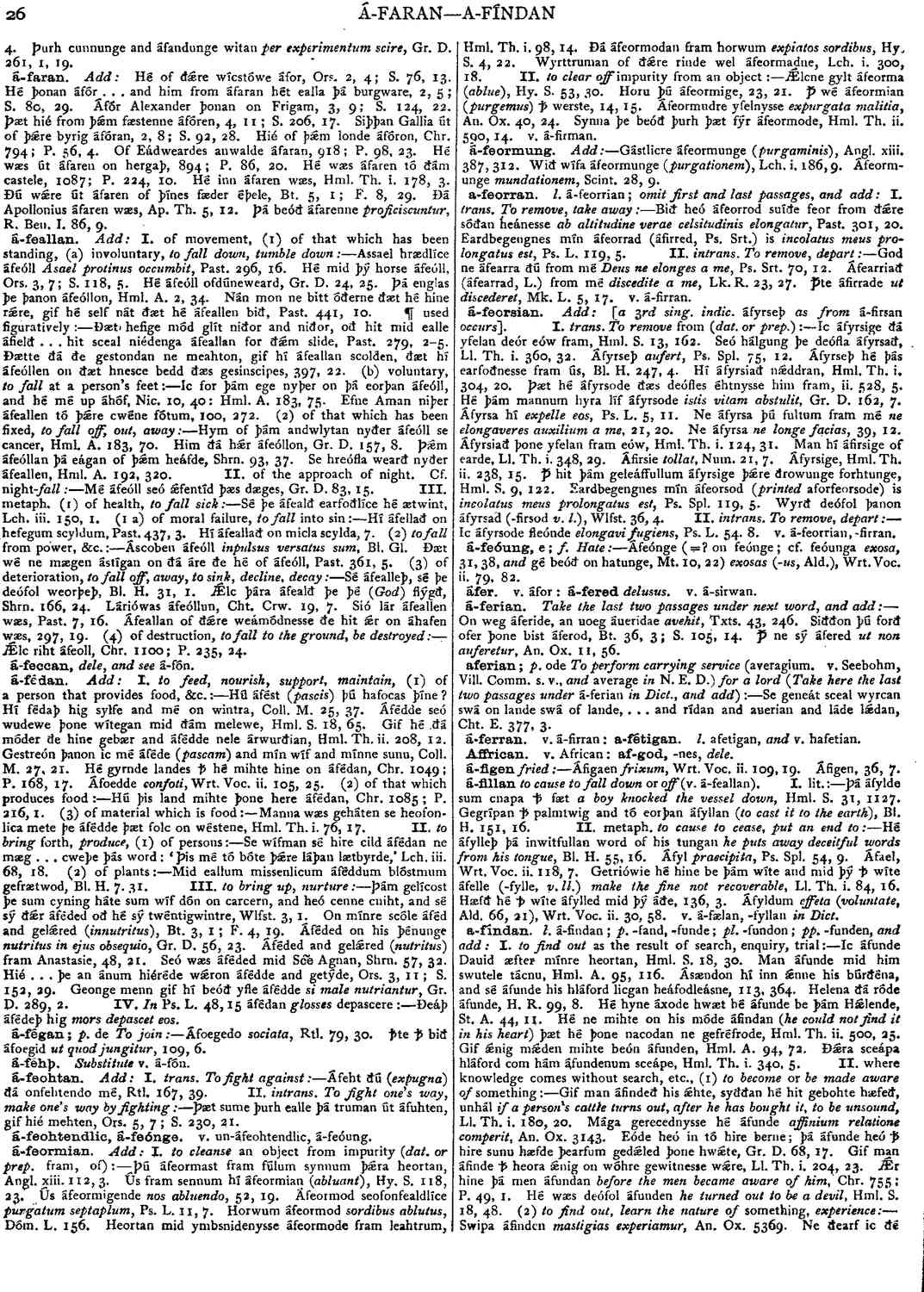a-fíndan
- verb [ strong ]
-
Ic áfunde Dauid æfter mínre heortan,
- Hml. S. 18, 30.
-
Man áfunde mid him swutele tácnu,
- Hml. A. 95, 116.
-
Ásændon hí inn ǽnne his búrðéna, and sé áfunde his hláford licgan heáfodleásne,
- 113, 364.
-
Helena ðá róde áfunde,
- H. R. 99, 8.
-
Hé hyne áxode hwæt hé áfunde be þám Hǽlende,
- St. A. 44, 11.
-
Hé ne mihte on his móde áfindan (
he could not find it in his heart
) þæt hé þone nacodan ne gefréfrode,- Hml. Th. ii. 500, 25.
-
Gif ǽnig mǽden mihte beón áfunden,
- Hml. A. 94, 72.
-
Ðǽra sceápa hláford com hám áfundenum sceápe,
- Hml. Th. i. 340, 5.
-
Gif man áfindeð his ǽhte, syððan hé hit gebohte hæfeð, unhál
if a person's cattle turns out, after he has bought it, to be unsound
,- Ll. Th. i. 180, 20.
-
Mága gerecednysse hé áfunde
affinium relatione comperit
,- An. Ox. 3143.
-
Eóde heó in tó hire berne; þá áfunde heó ꝥ hire sunu hæfde þearfum gedǽled þone hwǽte,
- Gr. D. 68, 17.
-
Gif man áfinde ꝥ heora ǽnig on wóhre gewitnesse wǽre,
- Ll. Th. i. 204, 23.
-
Ǽr hine þá men áfundan
before the men became aware of him
,- Chr. 755 P. 49, 1.
-
Hé wæs deófol áfunden
he turned out to be a devil
,- Hml. S. 18, 48.
-
Swipa áfinden
mastigias experiamur
,- An. Ox. 5369.
- Ne ðearf ic ðésecgan hú hefig sorg men beoþ seó gémen his bearna, for ðám ðú hit hafast áfunden be þé selfum. Bt. 31, i; F. 112, 19.
-
Hí forléton hine tó ánum treówe gebun-denne. Hé wearð áfunden fram ðám folce þǽr,
- Hml. A. 107, 158.
-
Hí blissodon ꝥ hí swilcne foresprecan him áfunden hæfdon,
- 101. 317.
Bosworth, Joseph. “a-fíndan.” In An Anglo-Saxon Dictionary Online, edited by Thomas Northcote Toller, Christ Sean, and Ondřej Tichy. Prague: Faculty of Arts, Charles University, 2014. https://bosworthtoller.com/38198.
Checked: 0